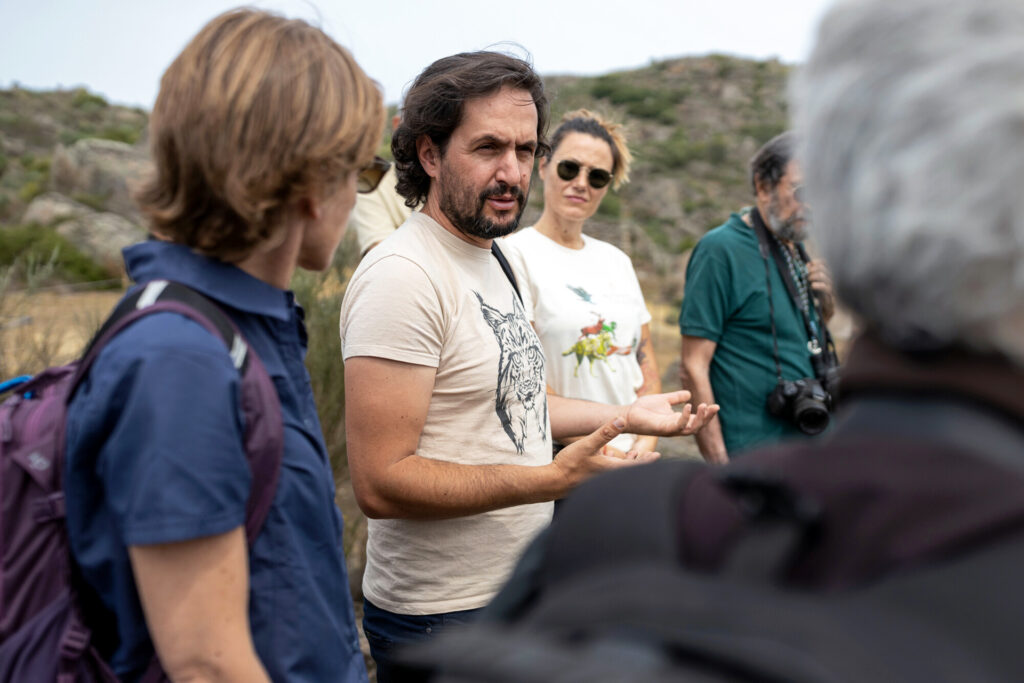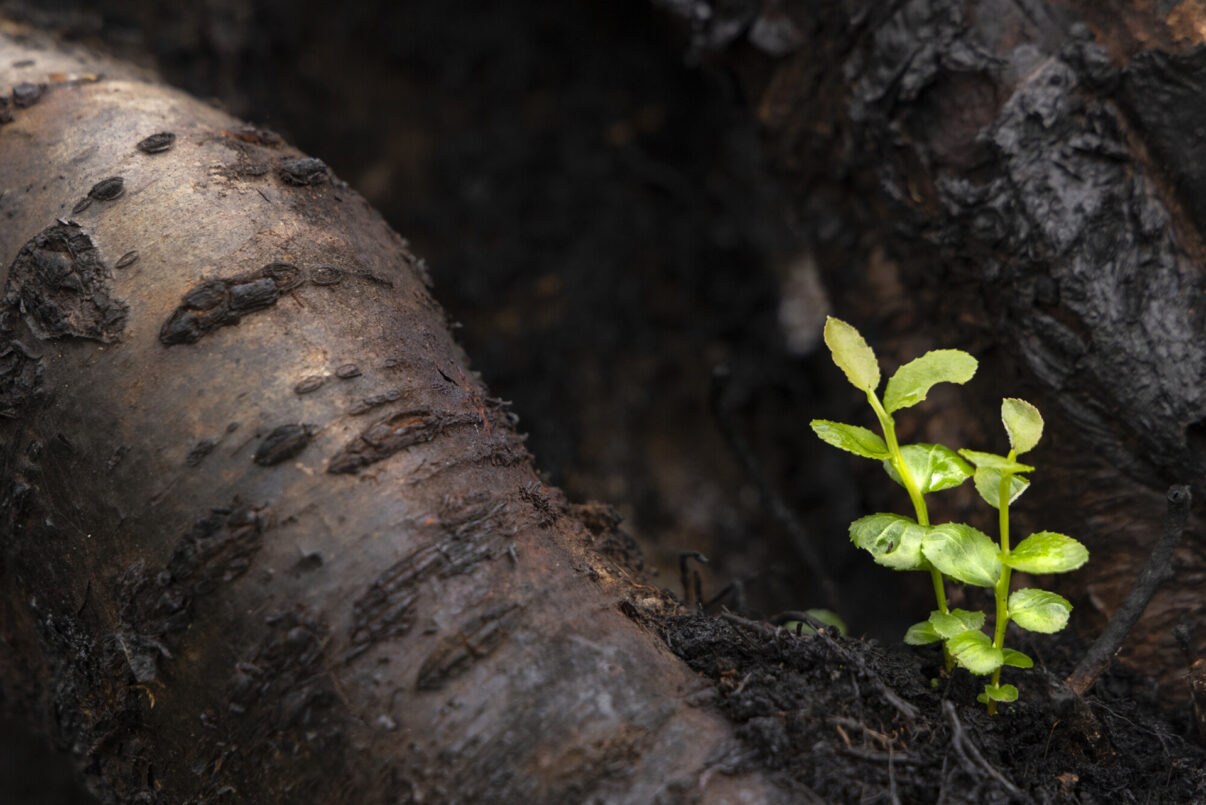Climate change is increasing the risk of catastrophic wildfire outbreaks in Mediterranean regions. A new study, based on the Greater Côa Valley in Portugal, shows that adopting a holistic approach to landscape management could be the most effective way of preventing such outbreaks, with rewilding playing a key role.
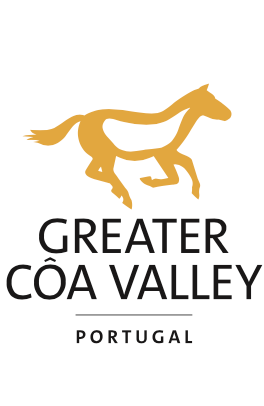 Wildfires on the rise
Wildfires on the rise
In many landscapes, naturally occurring wildfires can support biodiversity, regulate nutrient flows, and maintain habitats. However, climate change is increasing the incidence of catastrophic wildfire, which can have a devastating impact on wildlife, property, and people.
Rising temperatures and longer and more intense periods of drought mean such fires are burning more frequently, quickly, and fiercely, and for longer. Many parts of Europe are at risk, particularly those in Mediterranean regions. In 2023, an area around twice the size of Luxembourg burnt in the EU, amounting to more than half a million hectares.
Climatic factors are only one reason why the risk of catastrophic wildfire in Mediterranean regions is increasing. Many of these regions have experienced rural depopulation and land abandonment for many years. As people have left the land, so grazing livestock numbers have plummeted. With the diversity and abundance of free-roaming wild herbivores such as deer and ibex unnaturally low or absent in many areas, a lack of any kind of grazing means landscapes are increasingly covered by young, often monotonous forest or dense scrub. The proliferation of such flammable vegetation, coupled with the close plantation of pine and eucalyptus trees, leaves such landscapes increasingly susceptible to wildfire outbreaks.
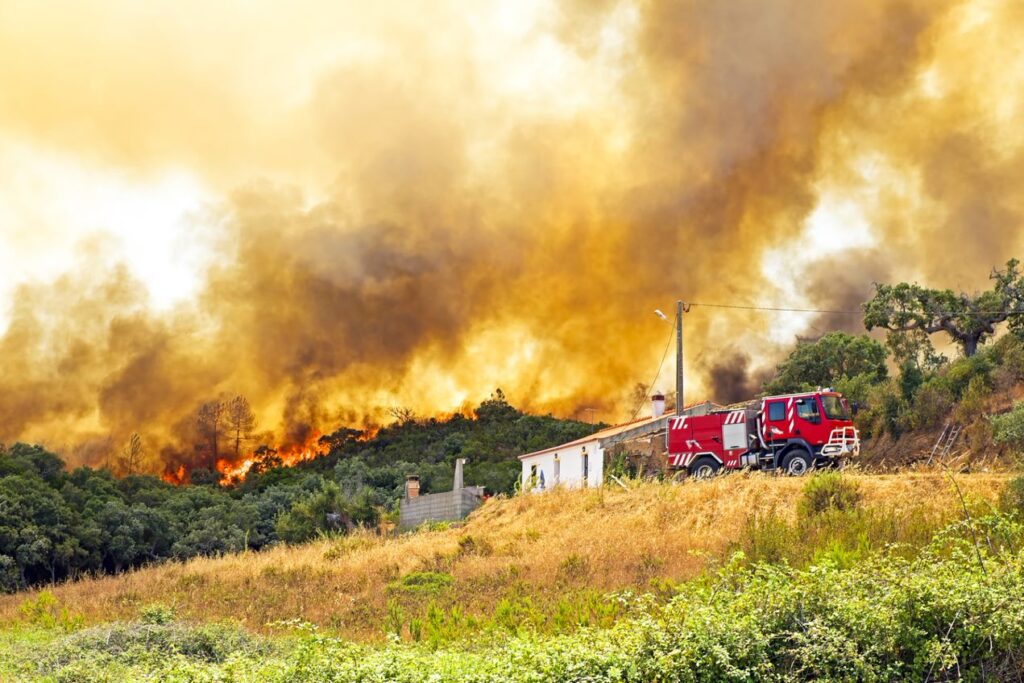
Rewilding as a solution
A new study has examined wildfire outbreaks in the Greater Côa Valley in Portugal. Published in the scientific journal Fire Ecology, it shows that efforts to reduce the risk of catastrophic wildfire outbreaks in Mediterranean regions could benefit from a more holistic approach to landscape management that takes account of various ecological, socio-economic, and climatic factors. Rewilding has a key role to play in such an approach.
Enhancing natural grazing by free-roaming herbivores such as horses and Tauros is an important solution in terms of reducing wildfire risk, because these animals consume flammable vegetation. This is one of the reasons why such herbivores – as so-called “grazing fire brigades” – are being reintroduced in many of Rewilding Europe’s rewilding landscapes, including the Greater Côa Valley. However, the results of the study show that analysing and mitigating wildfire outbreaks is a complex process, and that the incidence of wildfire could be reduced further in many areas by employing additional, complementary measures and working with relevant stakeholders.
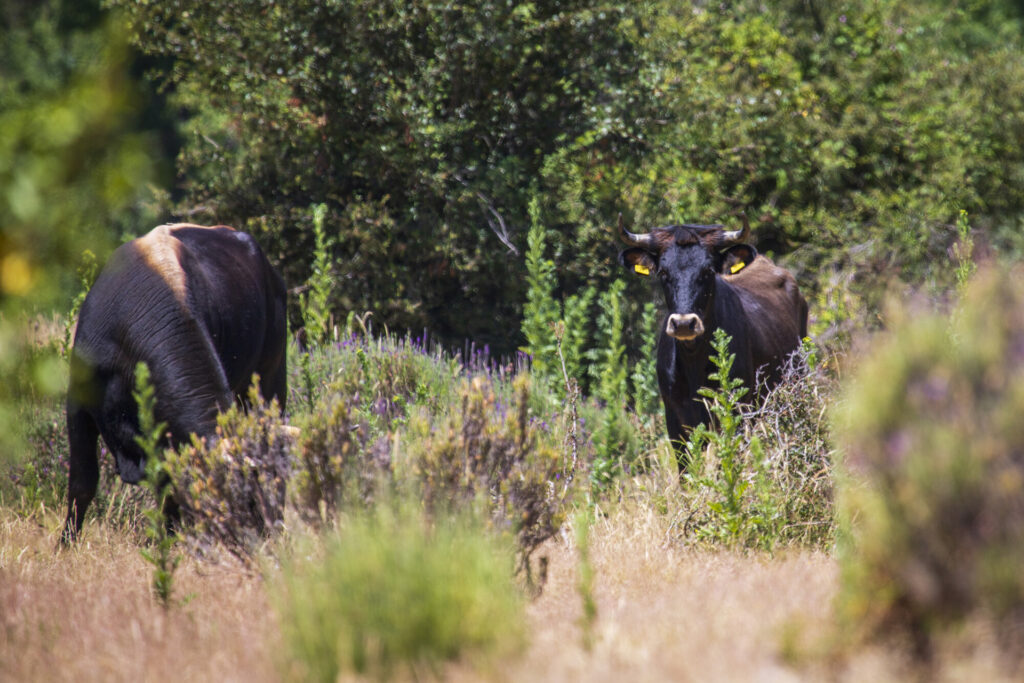
The human factor
The new paper reveals that only 2% of fires in the Greater Côa Valley region start naturally. Of the 89% of fires in the Greater Côa Valley region caused by humans, two-thirds are caused by negligence, which include fires pasture fires, as well as burning crop residues without authorisation, and working with machinery on hot days. Pastoral burning is a technique that has been historically used in the valley to clear the land and fertilise it for grazing with sheep and goats. The authors found that areas where sheep were grazed at higher densities were more likely to burn than other areas, which could be linked to such practice, which still continues today.
The researchers also found that the average frequency of large fires in the Greater Côa Valley is once every six years. If fires burn too frequently – which is a problem in many parts of Portugal – then the ecosystem has no time to regenerate and evolve into a more mature landscape where fire-prone shrubs are the most dominant type of vegetation. This can effectively lock the landscape into a cycle of burning.
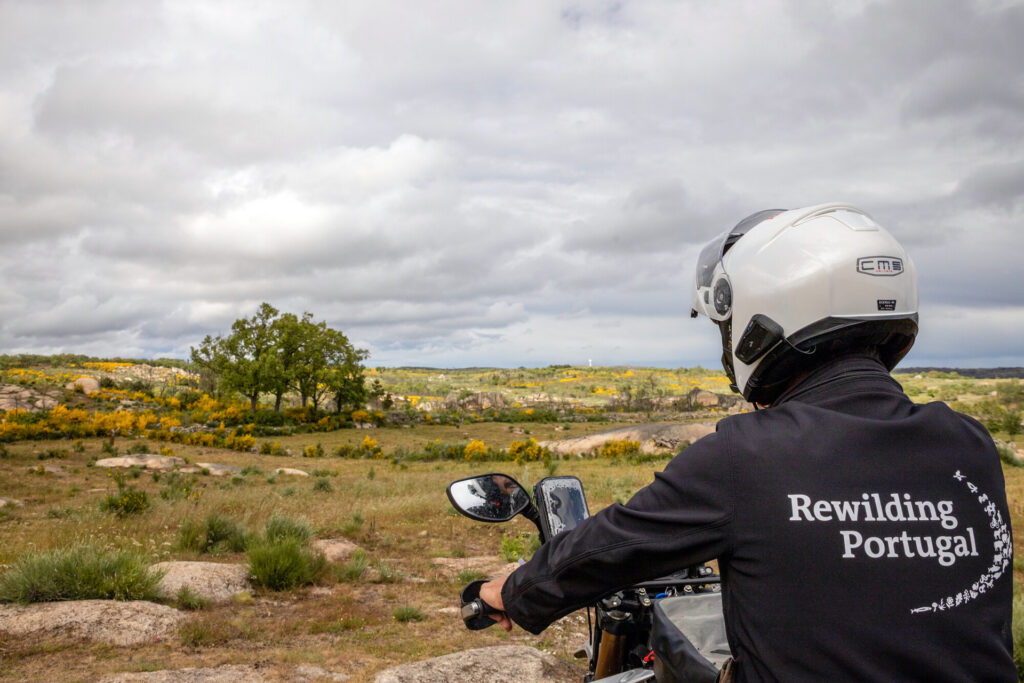
The importance of grazing management
Grazing by domesticated livestock has been put forward as a means of reducing wildfire risk, and is supported as such by subsidies in Portugal and across Europe. However, the results of the study show that the effectiveness of conventional livestock grazing practices in wildfire prevention is heavily influenced by how those livestock are managed. Most livestock in the Greater Côa Valley are grazed on their own (i.e. not alongside other grazing animals), on small parcels of land, and with supplementary feeding. This kind of grazing does not appear to be lowering fire risk. One reason for this could be that the livestock are solely feeding on green vegetation and not consuming drier, woody material, which is far more flammable. This difference underscores the unique ecological benefits of rewilding and the role of wild herbivores in creating more fire-resilient landscapes.
The research team also found that there was a 15% lower probability of fires breaking out in protected areas. This may relate to reduced public access and restrictions on land use, as well as surveillance by Rewilding Portugal’s rangers in areas that are being rewilded. It could also be attributed to the protection and management of native forests in such areas, which include fire-resistant species such as cork and holm oak.
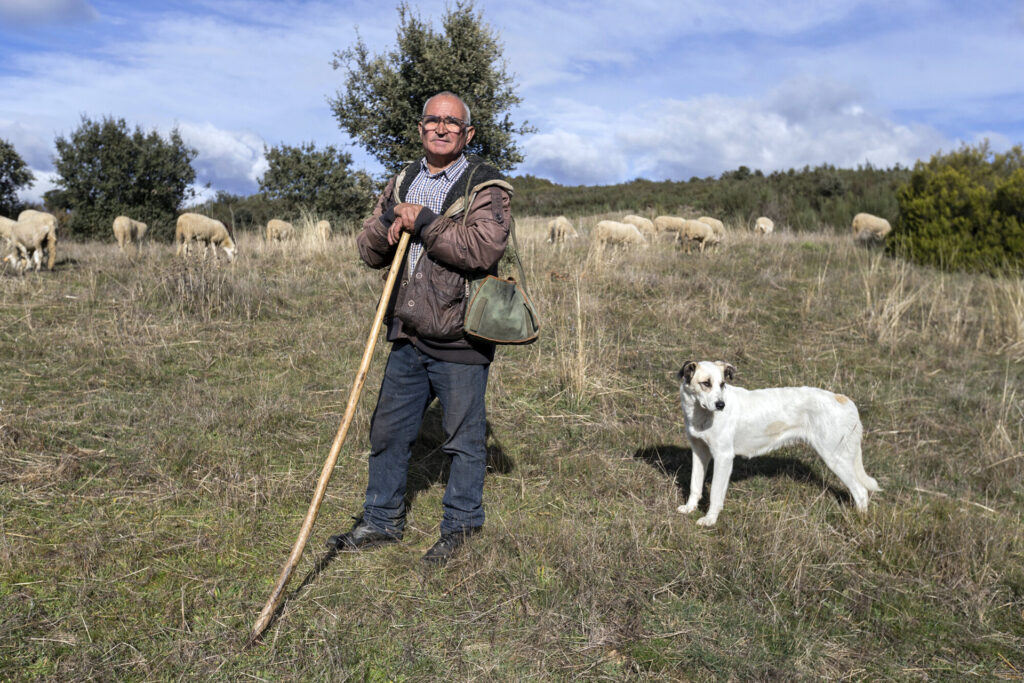
An integrated approach
Moving forwards, ongoing climate change means the risk of catastrophic wildfire outbreaks in Mediterranean regions will almost certainly increase – particularly on abandoned rural land.
The results of the new study indicate that grazing by domesticated livestock – on its own – may not be an effective solution if those livestock are managed in the wrong way. A more holistic landscape management approach addressing the social causes of wildfires and incorporating nature-based solutions could be far more beneficial in reducing wildfire risk. These solutions include the release of free-roaming wild and semi-wild herbivores in landscapes as part of rewilding initiatives, which can also help fire-damaged areas recover more quickly and enhance their biodiversity at the same time. Education, increasing public awareness, and restricting access to fire-prone areas during the fire season could also be important tools for reducing the risk of fires in rural areas.
In the Greater Côa Valley, the Rewilding Portugal team are addressing the social dimension of wildfire outbreaks by rewilding land that would otherwise be abandoned, and promoting social and economic activities based on it. They are also hiring local people to help with fire surveillance, while recognising the role of shepherds working on land adjacent to rewilding sites as stewards of the land.
